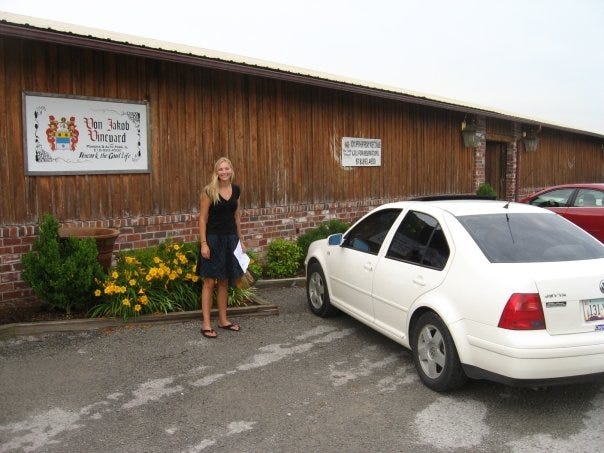Glendale, Arizona, 22 years old, and fresh out of college with a mix of pride and naivety that only the young can truly possess. The classroom was converted from an old janitor's closet. I had one of those cheap Target bookshelves, the kind you buy when you’re in your early twenties. I decorated the walls with posters left behind in the teacher’s lounge, hoping they would make it all look a little less sad. Still, I wore my “I’m gonna make this work” smile, convinced that my mere position and expertise would automatically demand respect, admiration, and—let’s be real here—compliance. I was a teacher, after all.
But those sixth graders? They had different ideas.
I stepped into my classroom with a mindset that I should automatically get respect and compliance because I had a degree. Because I was a teacher. My students should just fall into line, right? Wrong. Oh, how wrong I was.
The first time one of my students, let’s call him Jason, stood up in the middle of a lesson and started walking around, I froze. He wasn’t asking to use the bathroom. He was just walking around like he owned the place. I was staring at him, waiting for some kind of signal that this was a joke. Surely, someone would step in and remind him that this was a classroom, and we don’t walk around unless it’s an emergency, right?
Jason didn’t even pretend to try. Papers scattered across his desk, but not a single pencil in his hand. I walked over, asking, “Jason, where’s your work?” and he gave me that look—the one that said, “You’re not my mom,” followed by a shrug. He wasn’t being defiant in the way I expected. He wasn’t openly rebellious. He just... wasn’t doing anything. I didn’t understand. I kept thinking, Why are you doing this to me?
I was failing to see what was right in front of me. It wasn’t disrespect. It wasn’t disobedience. It was immaturity. It was disengagement, a result of their age and their own personal chaos—something I couldn’t control with a raised eyebrow or an adult expectation. I was standing in front of 25 kids, thinking I could command them into submission, thinking that my expertise and background would be enough to turn them into model students.
That’s when my roommate said it, after listening to my complaints about how none of this was going according to plan: “Jo, they’re 11.”
And it hit me—hard. It wasn’t a critique of me as a teacher. It was a shift in mindset. It was like someone had pulled the curtain back on my blind spot. They’re 11. They aren’t adults. They aren’t supposed to have the same capacity for focus and obedience that I had expected. They’re still figuring out how to sit still, how to listen, and how to understand that their actions have consequences. They were testing boundaries, pushing my buttons—and I was failing to meet them where they were.
That’s mindset coaching at its finest. Three words helped me redefine what was happening in that classroom. It wasn’t a failure on my part—it was a shift in my perception. The words weren’t about blaming the students; they were about rethinking my approach. They gave me the space to reframe my frustration. They made me realize that my prideful expectation for immediate compliance wasn’t realistic or fair to them, and it certainly wasn’t helping me be a better teacher.
Once I realized that, things began to change. I started to meet my students at their level. I learned to laugh at their antics instead of getting frustrated. I let them talk out of turn when they had something interesting to say. I made space for their youthful energy instead of fighting it. I started to coach myself—to teach them the skills they needed, not just the content I thought they should learn.
That first year was tough. But those three words—“Jo, they’re 11”—shifted my mindset in ways I’ll never forget. She helped me understand that being a teacher isn’t about wielding authority. It’s about seeing the potential in your students, respecting where they are, and meeting them with empathy, not just control.
That classroom with the old overhead projector wasn’t just a place for learning. It was where my pride got a reality check—and where I realized that teaching isn’t about demanding respect. It’s about earning it by seeing your students for who they truly are.
Empowered women empower women - but what if they are disempowered?
I once received a gift from a work colleague that reads, “Empowered Women Empower Women.” I then started seeing this phrase everywhere: on stickers, pins, and notebooks. It spoke to me. It felt like the essence of my career.
A common mindset I unpacked that has made me more effective
I used to believe that every minute of my day needed to be connected to a productive outcome. I was failing if I wasn’t ticking off a to-do list item, making measurable progress, or optimizing a process. If you’re nodding along, you probably have a similar affliction: the compulsion to squeeze every drop of efficiency from your waking hours.
Limiting Beliefs vs. Disempowered Mindsets
When we feel stuck, it can be hard to pinpoint the source of our struggle. Are we held back by the stories we tell ourselves or by a deeper, more pervasive way of thinking? To grow, it’s essential to differentiate between a limiting belief and a disempowered mindset.
But are you having fun?
The other day, I found myself in a familiar spiral. I was knee-deep in the demands of my Substack, Instagram, TikTok, and everything else I’ve tied my identity to lately. Progress, analytics, engagement—it all looked good, even great. But then someone asked me, “Are you having fun?”









Jo Lein, thank you so much for this wonderful post. It inspired me to write this: https://open.substack.com/pub/laurenbrownoned/p/theyre-only-eleven?r=fe2vc&utm_campaign=post&utm_medium=web&showWelcomeOnShare=false